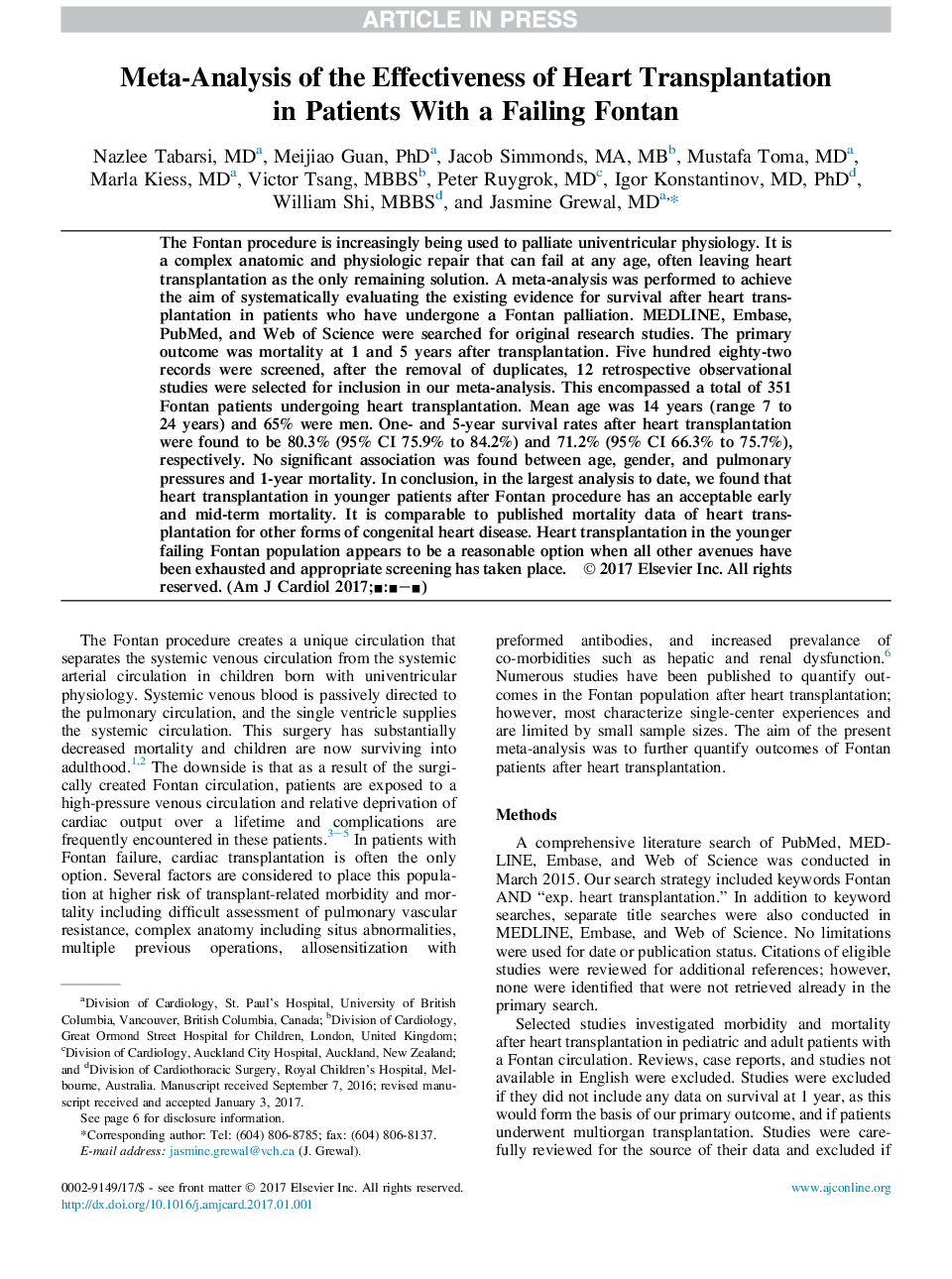| Article ID | Journal | Published Year | Pages | File Type |
|---|---|---|---|---|
| 5594986 | The American Journal of Cardiology | 2017 | 6 Pages |
Abstract
The Fontan procedure is increasingly being used to palliate univentricular physiology. It is a complex anatomic and physiologic repair that can fail at any age, often leaving heart transplantation as the only remaining solution. A meta-analysis was performed to achieve the aim of systematically evaluating the existing evidence for survival after heart transplantation in patients who have undergone a Fontan palliation. MEDLINE, Embase, PubMed, and Web of Science were searched for original research studies. The primary outcome was mortality at 1 and 5Â years after transplantation. Five hundred eighty-two records were screened, after the removal of duplicates, 12 retrospective observational studies were selected for inclusion in our meta-analysis. This encompassed a total of 351 Fontan patients undergoing heart transplantation. Mean age was 14Â years (range 7 to 24Â years) and 65% were men. One- and 5-year survival rates after heart transplantation were found to be 80.3% (95% CI 75.9% to 84.2%) and 71.2% (95% CI 66.3% to 75.7%), respectively. No significant association was found between age, gender, and pulmonary pressures and 1-year mortality. In conclusion, in the largest analysis to date, we found that heart transplantation in younger patients after Fontan procedure has an acceptable early and mid-term mortality. It is comparable to published mortality data of heart transplantation for other forms of congenital heart disease. Heart transplantation in the younger failing Fontan population appears to be a reasonable option when all other avenues have been exhausted and appropriate screening has taken place.
Related Topics
Health Sciences
Medicine and Dentistry
Cardiology and Cardiovascular Medicine
Authors
Nazlee MD, Meijiao PhD, Jacob MA, MB, Mustafa MD, Marla MD, Victor MBBS, Peter MD, Igor MD, PhD, William MBBS, Jasmine MD,
